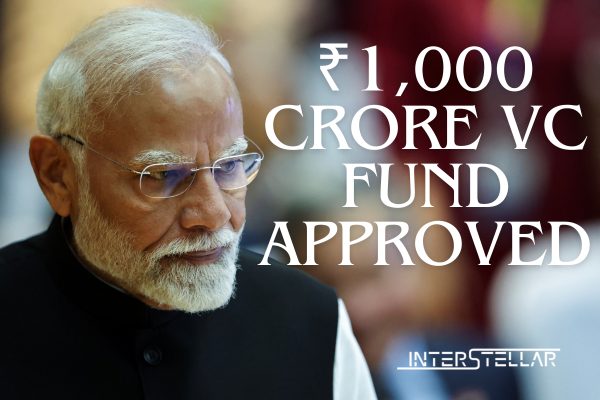Union Cabinet Approves ₹1,000 Crore Venture Capital Fund to Boost Space Sector in India
The Union Cabinet, led by Prime Minister Narendra Modi, has approved a ₹1,000 crore Venture Capital (VC) Fund dedicated to advancing the space sector in India. This initiative, proposed by the Indian National Space Promotion and Authorisation Centre (IN-SPACe), aims to fuel growth and innovation in space technology, strengthen national capabilities, and support India’s vision of becoming a leading space economy.
Financial Plan for the VC Fund
The fund’s deployment is planned over five years, with annual allocations ranging from ₹150 crore to ₹250 crore depending on available investment opportunities. Here’s a breakdown of the projected allocation:
| Financial Year | Allocation (₹ Crore) |
|---|---|
| 2025-26 | 150 |
| 2026-27 | 250 |
| 2027-28 | 250 |
| 2028-29 | 250 |
| 2029-30 | 100 |
| Total | 1,000 |
The fund plans to invest between ₹10 crore and ₹60 crore per startup, based on factors like the company’s growth stage and impact potential. Growth-stage investments range from ₹10 crore to ₹30 crore, while late growth-stage investments range from ₹30 crore to ₹60 crore. With this strategy, the fund is set to support around 40 space startups.
Key Objectives of the Space Venture Capital Fund
This government-backed VC fund will foster innovation and economic expansion through several strategic initiatives:
- Capital Infusion: Provides crucial funding to enable startups to advance technologically and commercially.
- Retention of Companies: Encourages Indian space companies to remain domiciled in India, counteracting the trend of relocation overseas.
- Expanding the Space Economy: Contributes to the targeted five-fold growth of India’s space economy within the next decade.
- Advancing Space Technology: Accelerates the development of advanced space technology by increasing private-sector participation.
- Boosting Global Competitiveness: Helps Indian startups compete on a global level, especially with rapidly growing international space firms.
- Promoting Atmanirbhar Bharat: Advances India’s self-reliance in high-tech sectors.
- Building a Vibrant Innovation Ecosystem: Creates a supportive environment for startups and entrepreneurs in the space industry.
- Driving Economic Growth: Boosts job creation and economic growth in the broader technology and manufacturing sectors.
Expected Benefits and Job Creation Potential
The fund aims to stimulate the space sector by attracting further investments, creating a multiplier effect that inspires confidence among private investors. This support is essential as conventional lenders are often hesitant to fund high-risk, high-tech space startups.
Additionally, this initiative will drive employment growth across the entire space sector value chain, spanning upstream, midstream, and downstream operations. Each investment is expected to generate hundreds of direct jobs in fields like engineering, data analysis, software development, and manufacturing. Indirectly, thousands more jobs will be created in supply chains, logistics, and professional services. In supporting the growth of the space ecosystem, the fund also aims to develop a highly skilled workforce that can strengthen India’s competitive edge in the global space market.
Background on IN-SPACe and the Space VC Fund Initiative
As part of India’s space sector reforms introduced in 2020, the Government of India launched IN-SPACe to oversee private-sector participation in space activities. This latest initiative aligns with the government’s ambitious goal of expanding the current $8.4 billion Indian space economy to $44 billion by 2033. With over 250 space startups emerging in India, timely financial support is essential to retain talent and foster growth.
The ₹1,000 crore VC Fund will function as an Alternative Investment Fund under SEBI regulations, targeting early-stage equity investments in Indian space startups. By reducing risks for private investors, this fund signals the government’s commitment to supporting space sector reforms and attracting additional private capital.





